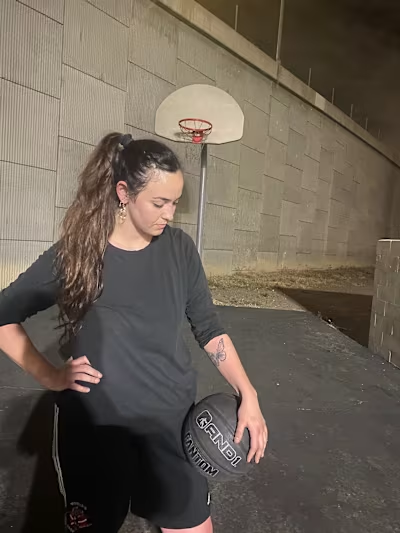Pendar Malek's Journey to Freedom

Escaping Iran to Save His Son as They Fight for Freedom
4 min read
·
May 31, 2023
--
By Liz Dowell

The sun is setting as darkness falls beneath their feet. The Iranian Revolutionary War broke out as they gathered their belongings. Fearing for his son’s safety, he takes his hand and leaves everything behind to pursue a better life. It is a long journey as they travel into the unknown.
Pendar Malek was only 12 years old when his father lost his job and made the arduous journey from Iran to America as they escaped the violence of war and the threat of being drafted into the Iranian child soldier program.
In Malek’s upcoming debut book, “PENDAR: A Father and Son’s Extraordinary Journey to Freedom,” he unravels the hidden truth behind his and his father’s heart-wrenching journey to freedom.
“I could have very easily been drafted into the Iranian army at the age of 13. My father didn’t want me to return to school and was terrified, especially when the bombings happened,” he said. “The bombings happened in Tehran, where they were being dropped a couple of 100 feet from where we lived.”
Immigrating to the U.S. as a young boy with his father, Malek struggled to discuss his difficulties and buried the pain of his journey within himself.
“It was a 30-year secret. I entered the U.S. at 13 years old, and it was in such an unusual way that I didn’t want to tell everybody all about it,” he said. “I was embarrassed and ashamed. So it’s something that I didn’t talk about.”
It was through the love and support of his wife that Malek found the courage to acknowledge this dark, painful experience that he had kept secret for so long.
“In 2017, thirty years later, I went to therapy, where much of this came out. I found it very therapeutic, but at the same time very difficult to talk about all these painful memories that I had brushed under the carpet for 30 years,” he said.
Malek began to let go of the deep shame he’d been hiding for most of his life and gained a meaningful perspective.
“Through going to therapy, I learned not to be so ashamed and embarrassed by my traumatic experiences and should celebrate and be very proud of what that journey has helped make me the man I am today,” he said. “But I never really looked at it that way or given any credit.”
After beginning to heal his inner childhood wounds, Malek shared his story with his family, friends, and colleagues, who encouraged him to share his story with the world.
“I began writing from my memories of when I was four years old, and my parents took me to see the movie Jaws in Tehran,” he said. “I then arrived in the U.S. as an illegal alien at 13 years old.”
Malek’s father returned to Iran, leaving Malek with his uncle in the States.
“My entire family was taken away from me, and I was separated from them, which caused me to have abandonment issues,” he said.
Due to the ongoing war and American hostage situation during the Iranian Revolution in 1979, Malek felt out of place as many Americans looked down upon immigrants from Iran.
“Americans didn’t care for immigrants, especially those from Iran, backed by the fact that I was an illegal alien. I didn’t want to give anybody a reason not to like me, or I didn’t want it to be a disadvantage, so I kept the whole thing as a big secret and brushed it under the rug and never told many people about what happened when I was 13 years old,” he said.
Growing up in a new country, Malek struggled to adapt to attending an American school.
“It was difficult because, at 13, I didn’t know the first thing about schools. I was bullied quite a bit in junior high and found it difficult to interact with girls because back home, we were separated. We didn’t have girls in our classes,” he said.
Malek learned to speak English with an American accent to hide the fact that he was an Iranian immigrant.
“I had this big secret, and I didn’t want anybody to know about it because I figured if other kids, teachers, or friends knew about my illegal immigration status, there could be a chance that they’d turn me in and I could be arrested and deported,” he said. “I always thought the worst of that whole situation and hid it from everyone.”
Malek understands his father’s sacrifices and is more self-aware of how his experiences helped shape his life as an immigrant.
“My father is a true inspiration throughout our journey because, at every point when we got turned down and hit a roadblock, I figured that was at the line; we’re going to turn around and return home,” he said. “But to my surprise, my father refused to give up every single time, and he’s like, No, we’re going to keep going.”
Malek is grateful for his father’s sacrifices as Iranians still fight for their freedom in Iran 44 years after the Iranian Revolutionary War.
“Unfortunately, the same regime is still reigning over everything now. And that aspect hasn’t changed, but hopefully, it will soon,” he said. “I’m hopeful that the protests since Mahsa Amini’s death will impact Iran’s current regime change efforts.”
Malek’s story inspires today’s generation; through his perseverance and strength.
“In today’s day and age, people can use this strong message of not giving up, not taking no for an answer, and working hard,” he said. “If an immigrant like me can overcome my painful circumstances and write a book about my story through my difficult experiences, so can you.”
For more information about Malek and to order his book, visit https://pendar.me/
Like this project
Posted Apr 30, 2025
This is a feature story about Pendar Malek's book and journey to freedom, as he escaped Iran and moved to the U.S. with his father during the 1970 revolution.
Likes
0
Views
6
Clients

Medium








